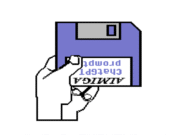Forget the Diploma—It’s Time to Show Off Your Superpowers
Let’s play a quick game: If you could only keep one—your degree or your ability to actually do the job—what would you choose? (Trick question: If you’re in the 2020s job market, you might not even get asked about your degree in the first place.)
A wave is quietly crashing through HR departments from Silicon Valley to the nearest Fortune 500 cubicle farm. The buzzword? Skills-first hiring. The thesis? It turns out you can’t debug code, close deals, or craft killer spreadsheets with a diploma alone. Companies are starting to hire people for what they can do rather than where they went to school—or if they went at all.
The Death (or at Least a Nap) of the Fancy Degree
While universities once sat at the top of the employment food chain—like the Harvard of dinosaurs—today’s hiring managers are looking at a new ecosystem. IBM, Accenture, and Kellogg’s aren’t just flirting with the idea; they’re on their second date, meeting the parents, and discussing moving in with skills-first hiring. In fact, IBM famously removed degree requirements from over half its U.S. job postings back in 2021, opening the floodgates for anyone who could prove their worth.
Why the shift? Two words: Talent drought. Companies have jobs that need doing, fast, and the old-school system of “must have bachelor’s degree in underwater basket weaving” is keeping great people out of the pool. Besides, who hasn’t met a genius who skipped college—or someone with a diploma who can barely open Excel?
Microcredentials: The Resume’s New Black
Enter the era of alternative credentials. If you’ve heard of “microcredentials” and pictured a tiny, adorable diploma, you’re not far off. These are compact, focused certificates or badges (yes, sometimes digital badges—because it’s 2025 and we’re all living on LinkedIn) you can earn in weeks, not years. Google, Coursera, and edX offer career certificates in everything from UX Design to Data Analytics. The result? An army of job seekers with portfolios and projects, not just paper degrees.
It’s not just about “hack the system” vibes, either. According to a 2023 survey from the Burning Glass Institute, 76% of employers see alternative credentials as a legit signal of job-readiness—especially for tech roles, marketing, and even some healthcare gigs. The bonus? These programs are cheaper, more flexible, and let you skill-stack your way into industries that used to be locked behind $100,000+ gates.
“Turns out, your skills might matter more than that dusty diploma
you almost lost in your last apartment move.”
The Real-World Test
Here’s the twist: Skills-first hiring doesn’t just mean passing a quiz. It’s about showing what you can do—think portfolios, real-world projects, and (gulp) those timed take-home assignments that keep you up at 2 a.m. The bright side? If you can build an app, solve a business case, or manage a TikTok campaign, you’ve basically passed the entrance exam—no Latin required.
For career changers, undergrads skipping the four-year debt spiral, or anyone whose talents were forged in the fires of YouTube tutorials and side hustles, this is the ultimate “open door” moment. Even the U.S. government is in on it, launching pilot programs for skills-based roles in federal agencies.
But Wait—Does This Actually Work?
Short answer: For a growing set of roles, absolutely. At IBM, skills-first hiring led to a 20% jump in diversity among new hires. Accenture says its no-degree jobs help cast a wider net, especially for digital roles that didn’t exist five years ago. Critics point out that pedigree still matters at some firms (and a Harvard MBA never hurts), but the cracks in the old system are real.
Still, before you light your diploma on fire and TikTok the ashes, take note: For now, this trend thrives in fields where skills can be tested—tech, design, project management, sales. If you’re dreaming of neurosurgery, you’ll still need a few more letters after your name.
But for everyone else? Welcome to the skills renaissance. No toga required.










































